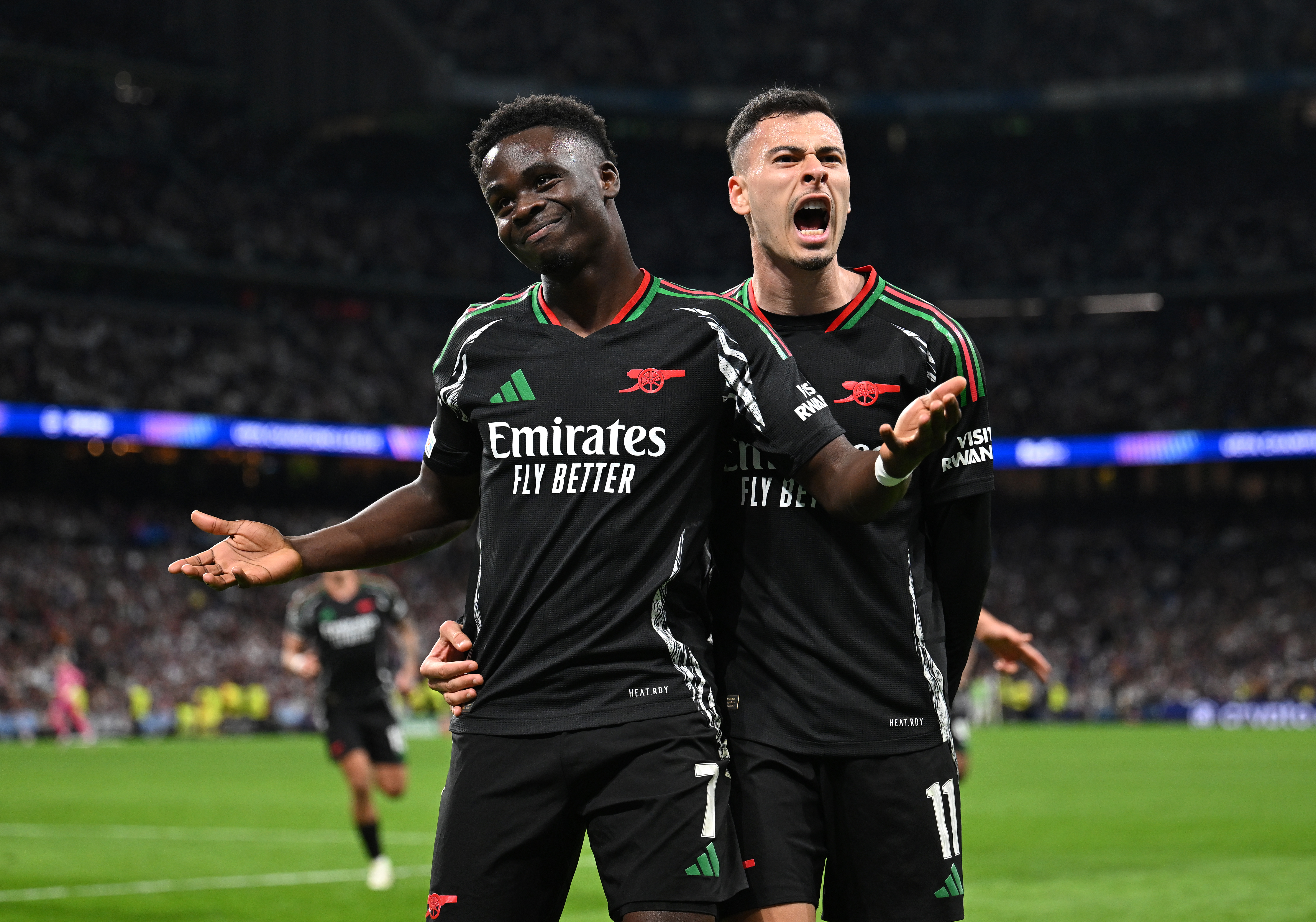Reinvigorated Robinho 2.0 shows Brazil a way forward without Neymar
Gregor Vasconcelos explains why - despite a good showing against Venezuela - recalling the former Manchester City attacker will only take the Seleção so far...
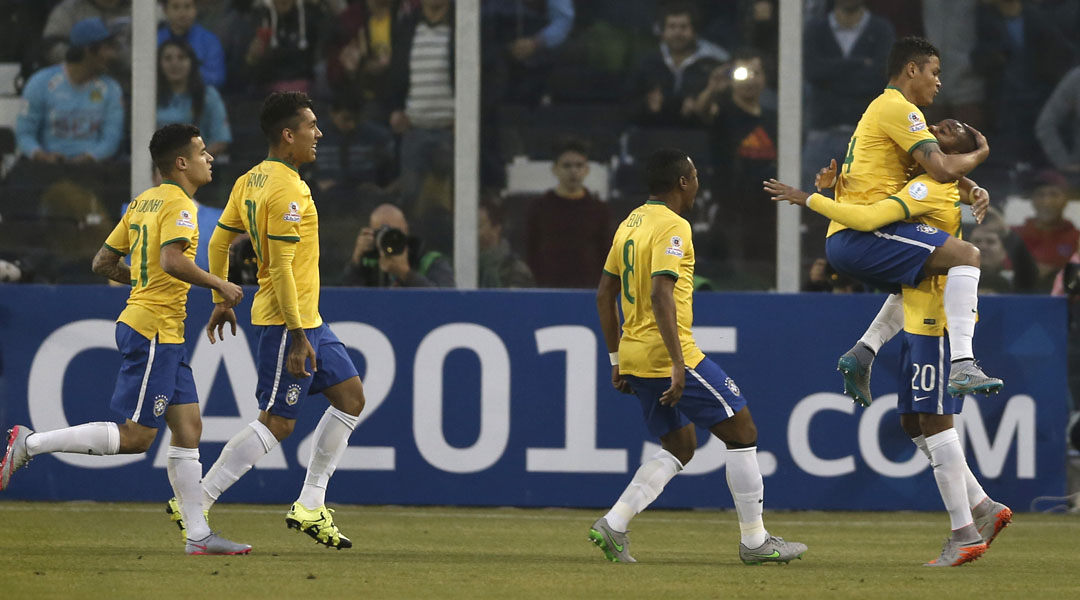
When Robinho trotted off the pitch in Santiago with 15 minutes remaining of Brazil's Copa America clash against Venezuela on Sunday, it must have felt somewhat different to usual. It was his first start for Brazil in nearly four years – the last coming in a 3-2 defeat to Germany on August 10, 2011 – but he looked reinvigorated, and reminded everyone of the exciting prospect he once was.
For the 75 minutes he spent on the pitch, the 31-year-old Santos forward managed to spruce up a Brazil side that had previously been so lethargic in Chile and were bemoaning the loss of suspended talisman Neymar.

Nine minutes in, he helped pave the way to victory when his corner was sweetly struck home by Thiago Silva. Soon after, his half-volley sailed over Venezuela goalkeeper Alain Baroja’s bar.
When he came off, Brazil were 2-0 up and looking comfortable. In the short-term at least, he'd been able to answer the question that was on everyone’s mind: how would Brazil cope without Neymar? Despite the near four-year absence, it looked like Robinho had never been away. In truth, he hadn’t. As his face stamped in Panini’s World Cup sticker book would testify, his image has always loomed large over the Seleção.
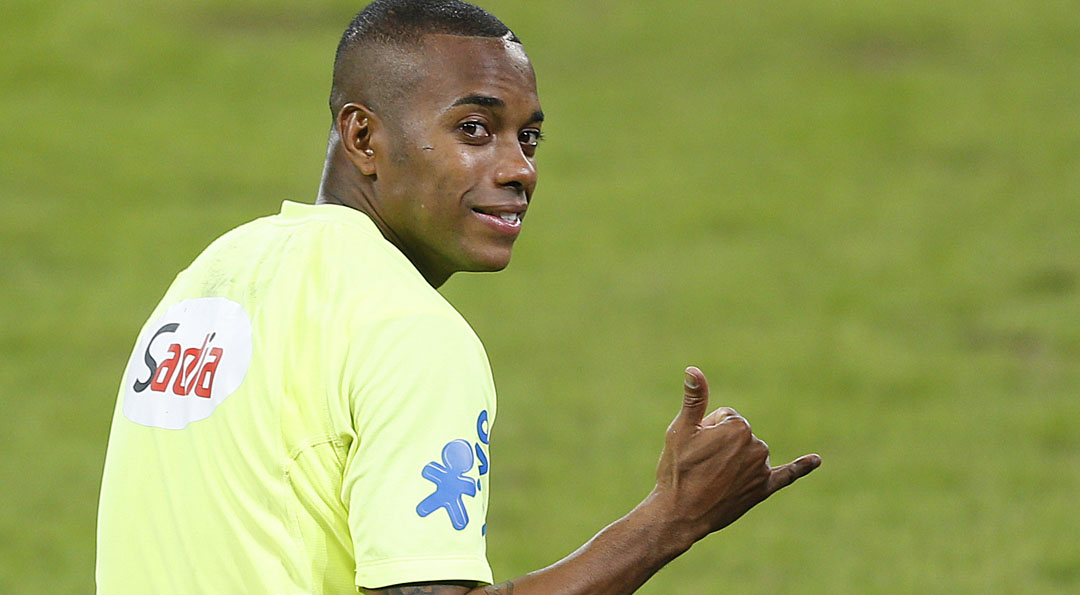
Robinho returns
In the build-up to the game, Brazilian media sang in unison to demand Robinho's return to the starting line-up. "He can be the reference that we lack without Neymar," mused SporTv commentator Milton Leite, with ex-Brazil forward Walter Casagrande, echoing: "Robinho has to start. He demands respect from his opponents because of the career and history he’s made at some of the world’s biggest clubs." While his CV may boast spells at Real Madrid, Manchester City and Milan, it can be easily argued that the magic has fizzled out since his impressive debut.
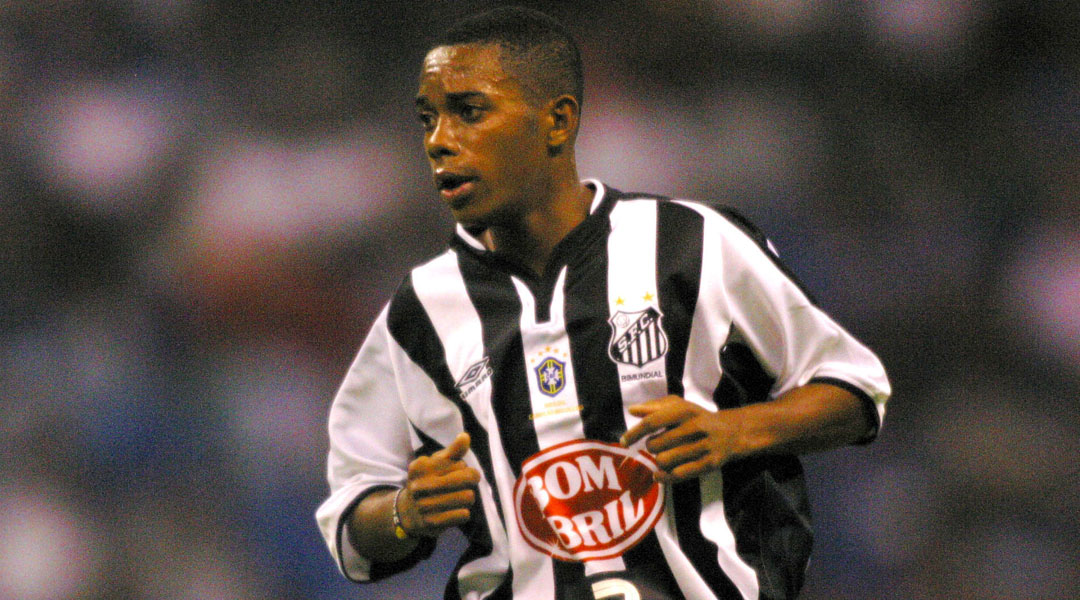
Aged 18, he announced himself with six stepovers that befuddled Corinthians full-back Rogério into giving away a penalty – converted by Robinho – which opened the scoring for Santos in the Brasileirão final.
The best features, fun and footballing quizzes, straight to your inbox every week.
When he left for Madrid two-and-a-half years later, he had a clear mission statement: becoming the best player in the world. In 2010, when he arrived at AC Milan via a mixed spell at Manchester City and a brief return home to Santos, his talk was of hard work and hoping to honour the Rossoneri shirt.
It was a down-to-earth presentation, showing a humble side that not many associated with the striker in his earlier days. Still, the difference between both statements says all you need to know about the frustration Robinho endured in Europe, where he came to be seen as a stepover-centred one-trick pony.
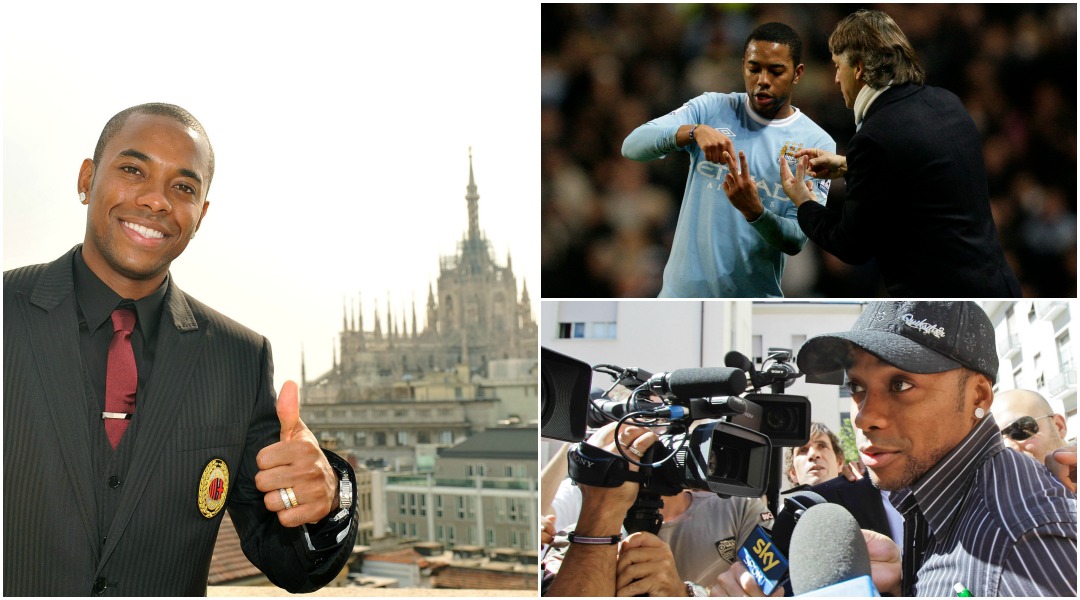
Yet, despite his flailing club career, Robinho is still revered by large parts of the Brazilian media thanks to his good showings for the Seleção in the past.
The game against Venezuela earned him his 98th cap, and though he couldn’t add to his 27 goals his presence turned out to be positive for Brazil.
"A player with his experience is vital," said Globo commentator Galvão Bueno at half-time. "He’s so intelligent, so skilful. He creates shortcuts for himself and his team-mates."
The 31-year-old was puzzlingly preferred to Lazio's Felipe Anderson, a revelation in Serie A this season
Even Ronaldo weighed in with a seal of approval. "He knows exactly when he has to hold the ball, slow the game down, and accelerate play," said the Brazil legend. "A player as experienced as he is is invaluable to the team."
In the absence of Brazil's only likely hero, it feels like hopes have already fallen on Robinho in the Copa America.
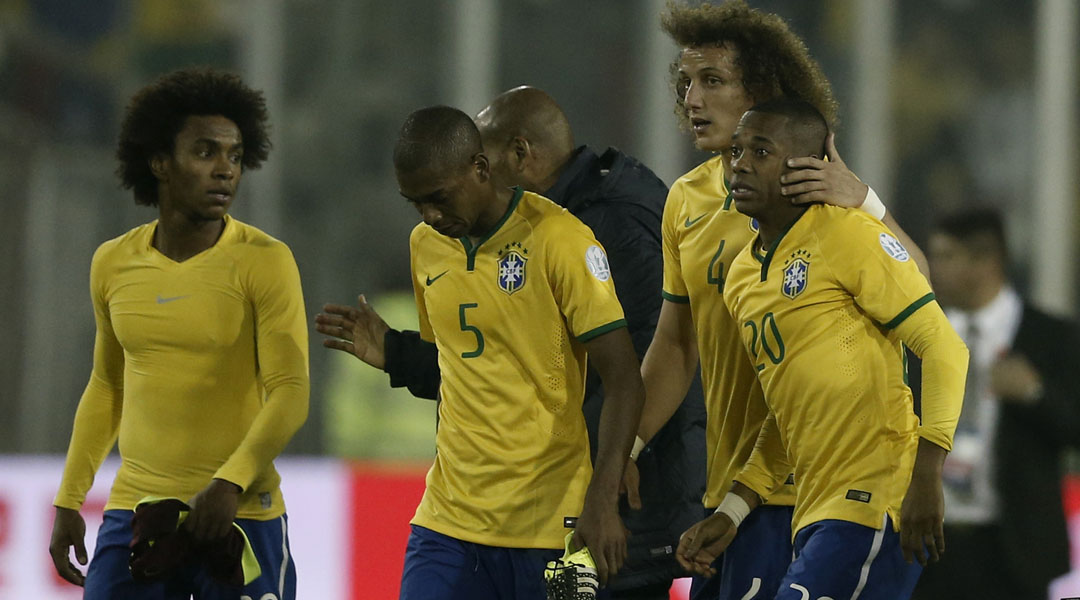
“You are all a lost generation”
Minutes before kick-off, SporTv pundit Mauricio Noriega offered an assessment of the struggles Brazil have faced recently. "What Brazil have lacked is more honest introspection," said the journalist. "We don’t. We no longer bring up the same level of players we once did, the talent pool is much smaller, we have serious deficiencies, and we’re no longer one of the great powers in world football."
Though scathing, it goes a long way to explaining both Robinho’s presence in the squad and the ecstatic response to his performance against Venezuela. Ghosts of the past still haunt Brazil to varying degrees. It’s always easy to point to a fragility created by the 7-1 defeat to Germany 11 months ago, when in truth it's that of 2006, eight years previously, that still cuts just as deep.
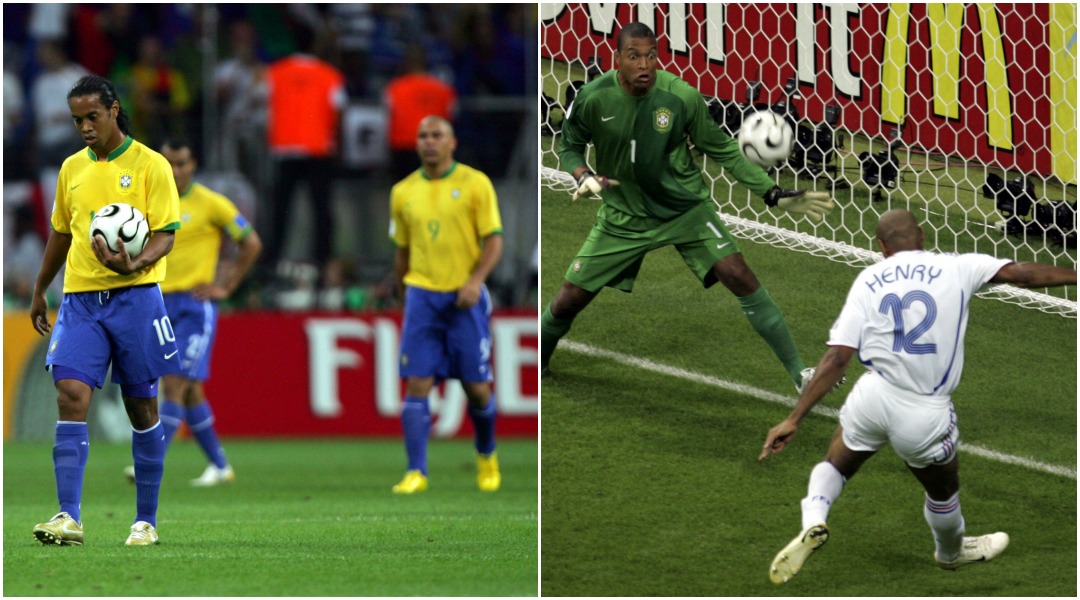
Then, Brazil arrived in Germany as World Cup holders having won Copa America and Confederations Cup titles. Robinho was just a substitute back then, but one who was meant to help ensure the Canarinho would continue their supremacy for years to come.
Simply, he's the tried and tested figure who has helped bring the national team a mild amount of success
The front four – composed of Kaká, Ronaldinho, Ronaldo and Adriano – were dubbed ‘the magic square’. From the moment the team stepped onto German soil, it felt like they were already on a victory parade. Defeat was never on the cards. With the exception of Ronaldo, those players were meant to lead Brazil into their home World Cup eight years later – yet in 2010 only Robinho and Kaká remained in the squad, neither as the world-beating presences that had once wowed the world.
Ultimately, the quarter-final defeat to France in Frankfurt spelled a painful end for that generation, one by one. Adriano, despite the many on- and off-field problems in the lead-up to South Africa 2010, was given a chance up until the last friendly. Ronaldinho, struggling in Milan, was given plenty of chances and despite failing to make the World Cup squad, was promptly brought back by new coach Mano Menezes.
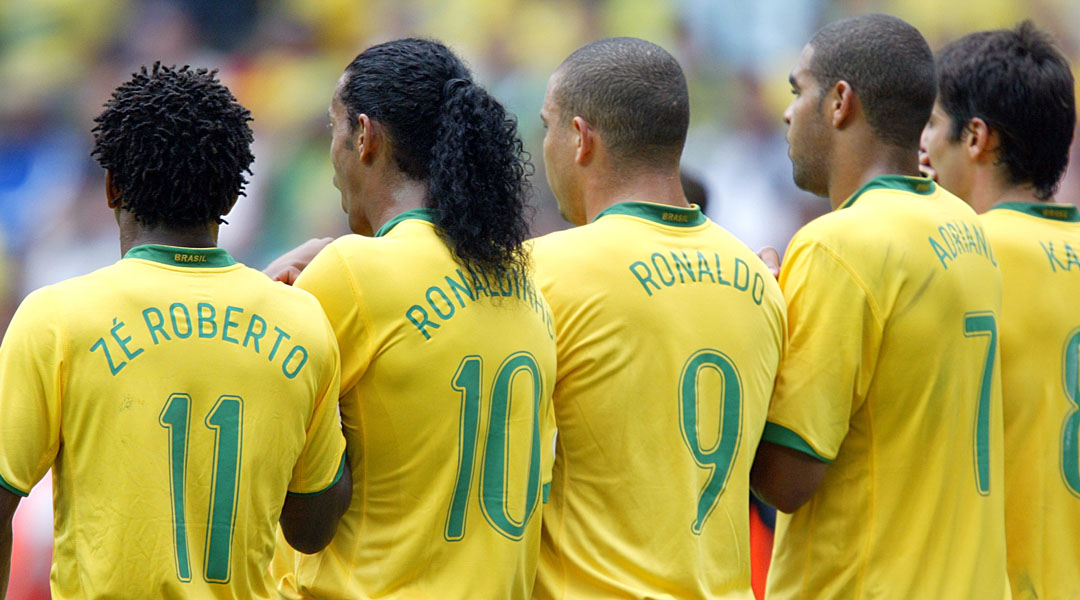
Kaká managed to cling onto his place in the side despite the limbo he lived at Real Madrid, and was still included on the stand-by list by Dunga for this year’s Copa America despite an ensuing move to Orlando.
Twilight years
By the time 2014 rolled around, all of the attacking burden lay on a single set of 22-year-old shoulders – those of Neymar. Robinho is the only one who remains from that lost generation, and only just, a constant reminder of what could have been for Brazil.
Simply, he's the tried and tested figure who has helped bring the national team a mild amount of success in the form of two Confederations Cups (2005 and 2009) and one Copa America (2007).
But arguably he shouldn't be. Facing a premature twilight in his career back at Santos, the 31-year-old was puzzlingly preferred to Lazio's Felipe Anderson, a revelation in Serie A this season.
Once again, the country that's been associated with progressive and inventive football instead opted for a retroactive approach. Those gambles have often paid handsomely in the past, but with an uncertain future ahead, Brazil have continued to show themselves frightened to take risks; refuge in a time that never was.
That may be enough to beat Venezuela, but if the Seleção are to return to the upper echelons of international football, they may need to finally exorcise the ghosts that have kept them stuck since 2006.
